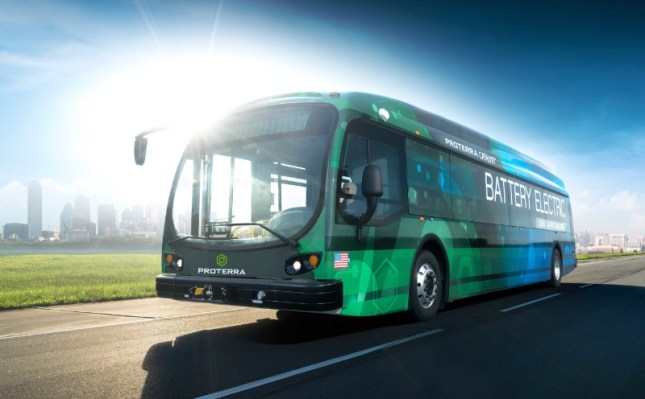Tesla topping the 300 mile per charge rating with its new 100 kWh battery was a big deal, but a new zero emission bus debuted today by Proterra has actually managed 600 miles out of a full battery in testing. In a real-world setting, Proterra’s new Catalyst E2 will probably manage somewhere between 194 and 350 miles in actual use settings – but that’s plenty according to the company, representing the full route needs for the average bus in the U.S.
That means that when the Catalyst E2 starts hitting city streets sometime in 2017, it’ll represent the first full-EV mass transit option that can actually stand in for existing gas-based vehicles without much in the way of compromise.
Proterra says in a press release that interest in its existing lineup is already on the rise, including a 220 percent rise in sales in 2016 vs 2015, and in order to meet the growing demand it’s going to double production starting in 2017. Part of that increased capacity will be focused on the new E2, which has a battery than can range between 440 and 660 kWH depending on configuration. That battery is actually the size of a mattress according to Wired, which is huge compared to the battery units found in Tesla and Chevy zero-emission cars.
All that extra capacity comes with a hefty price tag, too – around $800,000 just to start, which would potentially be a tough sell compared to a $300,000 or so price tag for a diesel-powered bus with the same passenger capacity. But that price is offset by subsidies in some cases, and there’s also the fact that it doesn’t have a maintenance-heavy internal combustion engine at the core of the powertrain, and it also doesn’t have fuel costs which will add to the savings over the lifetime of the bus on a rolling basis.
Proterra’s vehicles replace typical buses, making it more practical for short-term fleet replacement needs, but long-term, it’ll be interesting to see how these kinds of zero-emission solutions compete with things like smaller capacity shared commute services like Chariot, which Ford just acquired, and Tesla’s forthcoming plans to field fleets of multi-passenger electric vans as a transit alternative.
